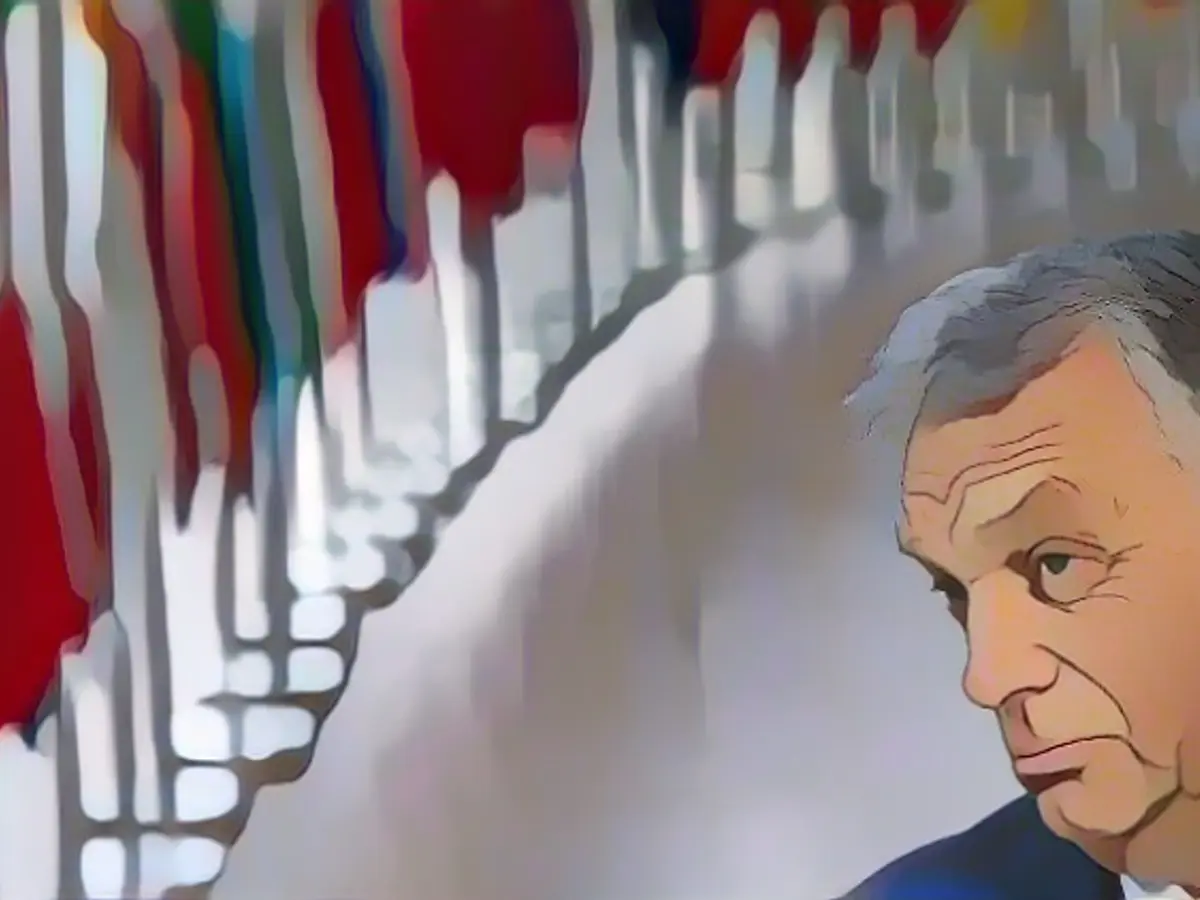Viktor Orban's Rivalry: The EU's Stumbling Block
Some see him as a dictator, others as Putin's lapdog. Regardless of the label, there's no denying that Viktor Orban knows how to command attention. At the EU summit in Brussels, the Hungarian leader once again found himself at the center of all the buzz until Friday.
A European special summit in early 2024 is on the horizon, all thanks to Orban. His country's veto has halted a €50 billion EU aid package for Ukraine. The Hungarian leader, unlike his contemporaries, finds joy in creating tension, especially when it comes to Ukraine's EU accession.
Orban: The Aid Funds' Ace Negotiator
Orban's aim is clear: he wants the EU's entire frozen aid package. He voiced his intentions amidst discussions for Ukraine's aid, invoking Brussels as his target audience. The EU had already released €10 billion to Hungary following Budapest's judicial reform, but it failed to quench Orban's thirst.
What many, including diplomats and MEPs, call 'blackmail,' Orban simply labels as negotiations. Despite not explicitly demanding EU funds from the EU leaders, they all know what's expected of him. The Slovakian Prime Minister called Orban an "economic terrorist" during the summit.
The Pacifist Blackmailer
Orban first announced his blockade at a summit in Granada, Spain. He criticized the EU for providing unconditional war funds to Ukraine, disagreeing on their military intervention. Consequently, Ukraine's EU accession progress remains stalled.
Orban's 'peace' advocacy seems a facade, considering his lenient stance towards Putin. Moreover, Hungary continues to buy Russian gas and oil despite the EU's decisions, proving too loyal a companion to the Kremlin.
Orban's tactics have led to tensions between the EU and Hungary, with even prominent EU leaders criticizing his approach. German Chancellor Olaf Scholz managed to push through the Ukraine-EU accession talks by suggesting a brief break in negotiations, allowing the EU to bypass Hungary's objecting vote.
After the summit, Orban openly disparaged the decision, calling it 'senseless,' and declared that he still had numerous opportunities to dismantle the EU-Ukraine alliance.
Related Reads
Despite the EU's attempts to appease Orban with aid, his opposition to Ukraine's EU accession remains strong, threatening to derail EU-Ukraine relations. Orban's stand against Ukraine has garnered support from Putin, with his spokesperson praising Hungary for being unwavering in its stance.
Source:
Enrichment Data:
Orban's opposition to EU aid for Ukraine has led to tensions between the EU and Hungary, with the Hungarian leader consistently criticizing the EU's funding of Ukraine. Here are some key points of enrichment data:
- Motives:
- Financial Loans: There are allegations that Orban may be using the EU aid for Ukraine issue to secure further financial loans or funding for Hungary. Orban has a record of utilizing EU funds for domestic political ambitions, including expanding his political party's power base through infrastructure projects and social spending.
- Nationalist Sentiment: Orban's opposition to Ukrainian accession is also driven by Hungarian nationalism and historical grievances. Hungarian populists consider Ukraine a Western proxy, and some argue that EU membership for Ukraine would weaken Hungary's regional influence.
- EU's Response:
- Sanctions: The EU has threatened to implement sanctions against Hungary if Orban continues to obstruct the EU-Ukraine accession process. In 2021, the European Commission initiated an infringement procedure against Hungary for violating EU law, which could lead to penalties or fines.
- Financial Incentives: To win Orban's support for the EU-Ukraine agreement, some EU countries have offered additional financial aid or investment in Hungary. However, the effectiveness of these measures remains uncertain.
- International Relations:
- Russia's Influence: Orban's stance on Ukraine's EU accession aligns with Russian President Putin's interests. Moscow views Ukraine as a strategically essential ally and has used Orban's opposition to strengthen its position in Eastern Europe.
- US' Influence: US-Hungary relations have been affected by Orban's opposition to EU-Ukraine accession, as the US supports a stronger EU-Ukraine alliance. The US has also raised concerns about Hungary's political advancings and human rights record, affecting potential military and economic cooperation.
In sum, Orban's opposition to EU aid for Ukraine is driven by both financial and nationalist motivations. The EU has threatened sanctions and offered financial incentives to secure Orban's support for EU-Ukraine accession. Meanwhile, Russia has benefited from Orban's stance, gaining increased influence in Eastern Europe. US-Hungary relations have also been affected by the ongoing situation.








